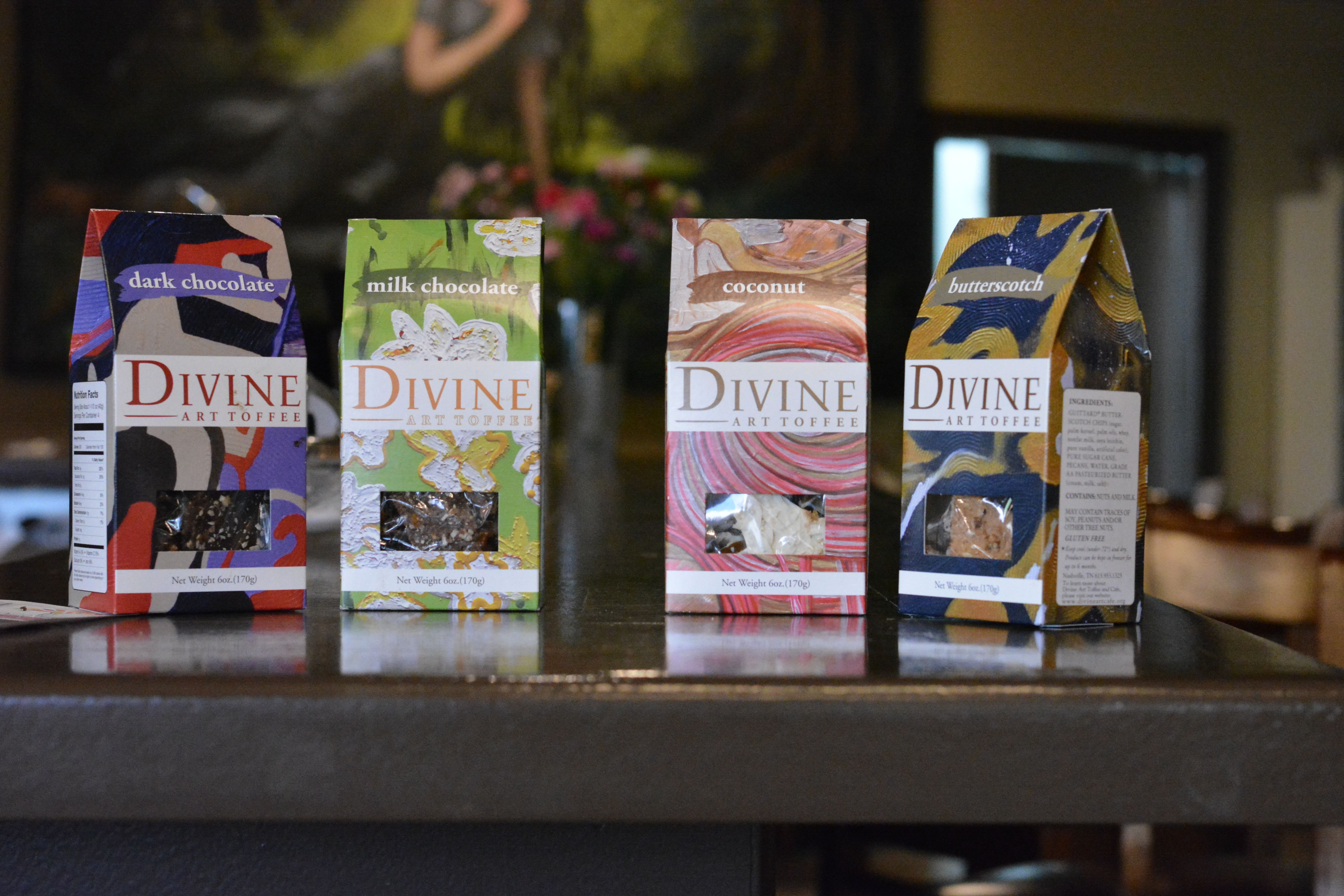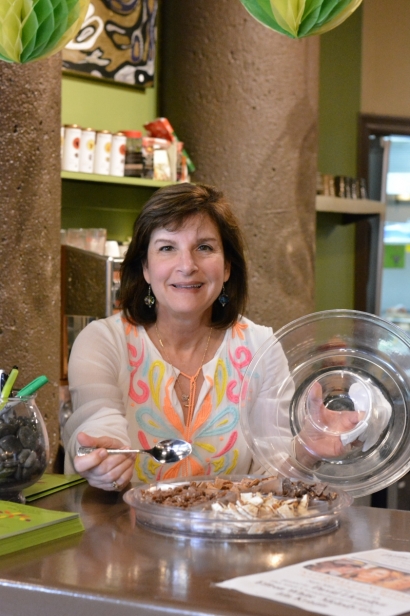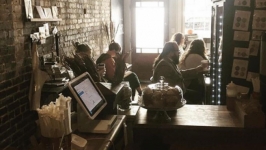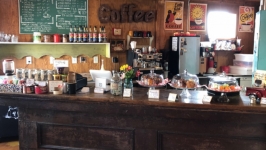Divine Art Café: Tales of a Toffee Maker
If you’re passing by the Gallatin and Eastland intersection in East Nashville, do yourself a favor and peek around the corner. Tucked away from the hustle and bustle, the Divine Art Café offers patrons an oasis from the daily grind, complete with coffee, smoothies, and a stellar menu. Among the cozy booths and fireplace, you’ll feel transported back into your favorite aunt’s kitchen nook, and I promise that the cookies will be just as good.
But patrons may not realize how much more Paula does behind the scenes. The café is actually a nonprofit designed to empower three distinct groups of disenfranchised people: disabled students, recovering addicts, and the elderly. Paula recognizes that these individuals need pathways to restoring their dignity and independence. In this sense, the café is a means to an end; Paula can create jobs for people who struggle to find work elsewhere, therein enabling them to receive training and recover their confidence.
It all started with toffee. Growing up Paula enjoyed eating her aunt’s toffee which, incidentally, came from a 1940s recipe gifted serendipitously by a Post Office employee. In 2005, Paula launched her toffee business out of her house. She became so successful that soon she was distributing her toffee to Whole Foods stores in six states across the South. Eventually she realized that the business was outgrowing her home and she would have to make a change. Seizing the opportunity, she decided her new venture would give back to her community, and so the Divine Art Café was born.
Naturally, the road to sustaining a functioning nonprofit was littered with challenges and naysayers, but despite difficulties Paula charged ahead and saw the pieces fall into place. “I just jumped off a cliff of faith and landed here,” says Paula. “I’ve lived my whole life this way.” Paula readily shares that she doesn’t always know how things will work out, but knows that there is no accident here. “It’s not a big production, but I know we are making a difference one person at a time.”
Her passion for these individuals is palpable. “The elderly have lived such full lives,” Paula says, “but our society often brushes them aside. How would you feel if that happened to you at the end of your life? They are like rich, walking books of experience!” She also fondly recalls one of the disabled students on staff who, as she put it, came in on his first day looking like Eeyore, the moping donkey friend of Winnie the Pooh. One year later, “he was taking the bus by himself, which he had never done before, had a girlfriend, and smiled constantly.” For Paula, it’s stories like these that are the markers of success.
Paula is regularly trying something new to draw people into the café. They offer Frothy Monkey espresso, Provence breads, and an eclectic menu. She has even launched a biweekly art class in the evenings. She also sells gift boxes of eight kinds of toffee, as well as chocolate-dipped pretzels sprinkled with toffee crunch (hint: Valentines gifts, anyone?).
But in case there are not enough edibles to entice you into the café (and there are), go for the people. Strike up a conversation with Alec, one of the smiling students, or chat with Nancy about her grandkids, and you will see what Paula sees: fascinating and talented people who just need a second chance.








